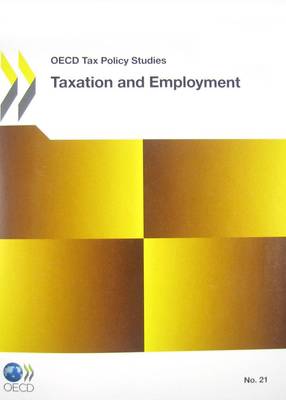
- Afhalen na 1 uur in een winkel met voorraad
- Gratis thuislevering in België vanaf € 30
- Ruim aanbod met 7 miljoen producten
- Afhalen na 1 uur in een winkel met voorraad
- Gratis thuislevering in België vanaf € 30
- Ruim aanbod met 7 miljoen producten
Zoeken
Omschrijving
This publication examines the effects of taxation on employment, highlights the resulting policy challenges, and discusses the ways governments endeavour to address these challenges. Chapter 1 provides a broad overview of the effects of taxation on employment, examining how taxes on labour income can affect both the size of the labour force and the level of unemployment, and highlighting key areas of concern for tax policy makers. This analysis is then augmented in chapters 2-4 by the more detailed analysis of the effects of taxation on the employment of three groups where empirical research suggests that responses of labour supply to taxation may be relatively large: low-income workers, mobile highly-skilled workers, and older workers. As well as highlighting key areas of concern for tax policy makers, the report places a particular focus on the different measures that have been adopted by countries to attempt to overcome these problems, discussing, where possible, the main design features, and the advantages and disadvantages of the different approaches that have been adopted.
Specificaties
Betrokkenen
- Auteur(s):
- Uitgeverij:
Inhoud
- Aantal bladzijden:
- 154
- Taal:
- Engels
- Reeks:
Eigenschappen
- Productcode (EAN):
- 9789264120594
- Verschijningsdatum:
- 12/10/2011
- Uitvoering:
- Paperback
- Formaat:
- Trade paperback (VS)
- Afmetingen:
- 210 mm x 279 mm
- Gewicht:
- 390 g

Alleen bij Standaard Boekhandel
+ 111 punten op je klantenkaart van Standaard Boekhandel
Beoordelingen
We publiceren alleen reviews die voldoen aan de voorwaarden voor reviews. Bekijk onze voorwaarden voor reviews.











